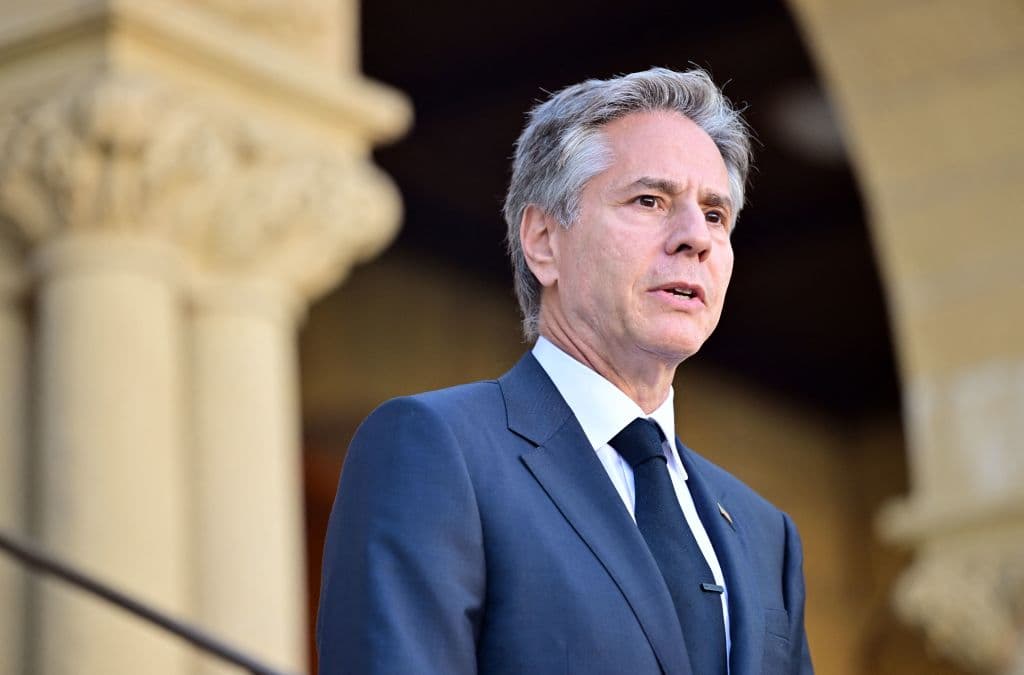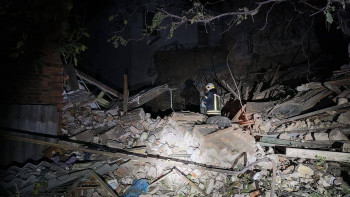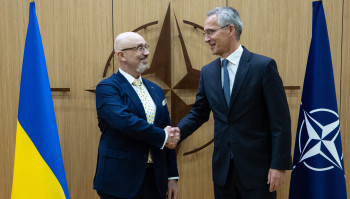Blinken calls Russia’s drone strikes ‘sign of increased desperation,’ promises continued US support

U.S. Secretary of State Antony Blinken called recent Russian drone strikes a "sign of increased desperation by Russia."
Blinken promised to continue adjusting U.S. aid to fit the Ukrainian needs at a press conference at Stanford University in California on Oct. 17.
"You're seeing these drone attacks. What are they doing? They're attacking civilians. They're attacking critical infrastructure, like power plants, hospitals, and things that people need in their daily lives that are not military targets," Blinken said in a comment to The Kyiv Independent.
The comment referenced the recent drone attacks in Ukraine on Oct. 10 and Oct. 17.
Russia launched its first-ever attack on the Ukrainian capital using Iranian-made Shahed-136 drones early on Oct. 17. The bodies of five civilians, including a pregnant woman, have been found under the rubbles of a destroyed residential building, Kyiv Mayor Vitali Klitschko reported.
The drone attack came exactly a week after Russia's massive barrage of missile strikes during Monday rush hour claimed at least 20 lives nationwide.
Blinken called Russia's strategy "a sign of the levels that they will stoop to, as we have seen repeatedly when it comes to harming civilians and civilian infrastructure."
Blinken emphasized the consistency of U.S. support to help Ukraine fight.
The U.S. is re-adjusting its military aid as the "nature of the aggression has changed," he said. "It's moved to different places, different terrain, and different weapons are being used."
"We've adjusted every step along the way, in very close collaboration with our Ukrainian partners, as well as with many countries around the world, to try to make sure that based on what Ukraine actually needed," Blinken added. "We were doing as much as we could to get into their hands as quickly as possible."
He used Ramstein as an example of successful coordination between the countries and emphasized the need to ensure that the provision of new technologies comes with training Ukrainian forces on the use and maintenance of the weapons.
The New York Times reported on Sept. 29, citing U.S. military officials, the U.S. Defense Department plans to establish a new command based in Germany that will coordinate the equipment and training of Ukraine's military.
The new command will involve about 300 people and report to General Cavoli, the top American officer in Europe.
In the coming months, the U.S. "wants to make sure that we are doing everything possible to help Ukrainians defend themselves against this aggression, even as they are pushing the Russians back," Blinken said.
U.S. European allies have undertaken similar measures to train Ukrainian soldiers.
As part of the British Interflex program, launched in July, about 10,000 Ukrainians are expected to be trained in the U.K. Over 5,000 Ukrainian troops have already completed training.
On Oct. 15, Le Parisien newspaper reported that "up to 2,000 Ukrainian soldiers to be welcomed in France" for training.











